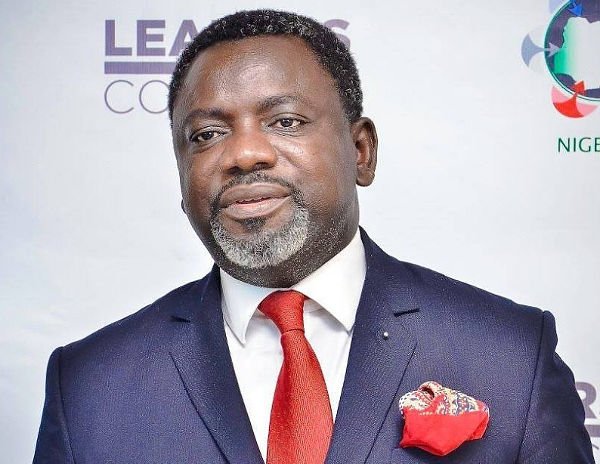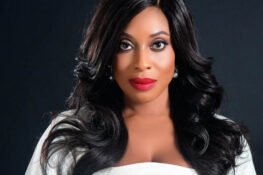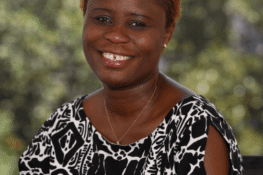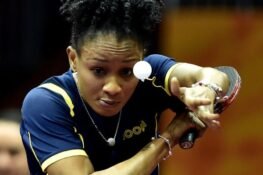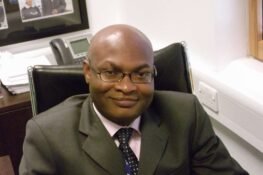Mr. Linus Okorie is the president and founder of Guardians of the Nation International, a leadership capital development organization. He speaks on the journey of developing youths for leadership, a journey he started as a teenager himself twenty-three years ago.
What is your take on the state of the nation?
My take is that the country is not making progress as envisaged and, so far, the people of the country are uncertain. There is high level of uncertainty; there is fear in the public space. Nigerians have not been able to understand clearly the direction of the government, where the government is going. And that alone is a big challenge for any system or any nation. In fact, nations make progress as a result of the buy-in of the citizens of a country. No matter how beautiful the dreams any government has, no matter the intensity or the depth of the vision, no matter the beauty of the vision, if there is inability to articulate these visions clearly and communicate it to the people in such a way that the people understand it, embrace it, the people buy into it, the people mistrust leaders over time. In fact, the fact is that Nigerians have suffered from a lot of broken promises over a period of time, so there is a lot of lack of trust in the system. This means there is always a kind of suspicion among the people of the nation. So, that suspicion is very high right now. And there is division – people are thinking along different lines and that alone is a difficult challenge that keeps our country on a slow move that is happening right now. So this is a leadership deficit issue.
As a leadership development expert, what would you say is responsible for Nigeria’s leadership crisis?
That points to the fact that it’s been a long time I have been shouting and raising my voice on the need for us to invest in the leadership capital of this great country. A lot of the young people that occupy public positions are not groomed. They might have gone to school but a lot of them do not understand what leadership is all about. Their definition of leadership is self-aggrandizement, when it is ‘I know-it-all; when it is all about me; when it is ‘I cannot think of the common good but to use it for personal aggrandizement or group interest, which is, tribe interest – whatever it is. When leadership is reduced to that, it is unfortunate. A lot of people who are in power today came into power with the single theme of, ‘This is our government; we want to take over; we want to be involved; we want to change things.’ But a lot of them are not prepared for leadership. So, as a result, the president is one person but he needs a critical mass of people that think like him, that say we believe in this ‘change’ and will live out the ‘change’ in our lives as well. So if you have a system where the president genuinely or probably wants to make a change happen and has not been able to bring on board a group of people that buys into that ideology in itself, it is impossible for him to be able to make any meaningful change happen. Secondly, the fact that the people of the country over time have had wrong narratives, they are unhappy and so the way they react to the system usually is, if you cannot quickly meet their needs, they turn against you. And so during the campaigns, there were lots of promises that were made, there were lots of demonization of the other government – the PDP government that was in place. There was lot of over-zealousness in various parts, all kinds of people made all kinds of promises from different quarters and so people expect them to be fulfilled. If you could remember, a day before the results were announced, it was clear to everyone that change has come to Nigeria. So because the people were eagerly waiting for the change of government, the messiah that will take them out of difficulties and, so far, succour has been slow in coming. So, when there is hope deferred, it makes the heart sick and that is the true feelings of people. From all sectors, people are saying that the policy is not being felt. For example, I know the pressure people put on me from different areas, which is a reality of the challenging situation, simply because of the fact that a lot of people in the system are not leaders. They just have the opportunity. They were not prepared to lead, and when someone is not prepared to lead, what usually happens is what is happening now. No matter how great the president is, if he does not have great team and if he cannot inspire that team and the people of the country to buy into the vision, nothing will happen. Power resides in the people, there are possibilities that the people can bring to it.
The political space is bereft of any known philosophy or ideology. How did we get here and what is the way out?
You remember that these problems of lack of ideology and national framework started from independence. Look at when the British people were in this country, they organized us, they put us together, they also tried to help us think. But, during independence, everybody came together; the language was ‘one Nigeria’ by those who fought for independence. All the meetings that they held were how we could be given freedom as a nation. But post-independence, instead of that momentum to be the driving force where the emphasis would be how to make our nation great even if we had administrative structures in terms of regions, how to all think one nation, love for nation, and nation first – those kinds of ideologies, clear-cut ideologies that Nigeria is a great nation, that every Nigerian must love Nigeria, must think Nigeria first, that every Nigerian must be honest and hardworking, that every Nigerian must be excellent in service and they showed example at that stage and they stayed the cause – they were selfless. Imagine if they were selfless, they would have created programmes – leadership development programmes – that would reinforce that, so that young people coming up will come into a class and someone would teach them about how great their country is. Somebody would be sharing with them philosophies that make up their country. None of that happened; rather, people went into their regions to get power, to be relevant, to be seen. They went in the regional and tribal points and that was the beginning, because if people are divided into different groups, there is no way the country can stand. During independence, tribalism existed and that was the bane of our country. But guess what, tribalism would have sunk Nigeria if it really existed thereafter; people would have stolen from the centre and would have gone back to their local communities to develop it. But it stopped. So in this country, there is no tribalism; what is happening right now is personal aggrandizement, cronyism and all types of burden, clearly under the pretense of tribal or religious undertone. And so that is basically what destroyed the foundation of this country. So, some of our founding fathers did this country wrong; they did Nigeria wrong, despite their great thinking of helping their people. Imagine if everybody focused on building a nation where everything works, where everyone is important, where it doesn’t matter where you come from, a nation where merit would have been the standard of the way things are done. Imagine if everybody thinks like that, where we think ourselves as the United States of Nigeria; where we teach our young people the power of the national flag; we teach our young people the meaning of the national anthem and pledge. These are the things that have the capacity to build a great nation. Great nations don’t just appear great; nations are made great by human beings. So, if we have to get it right as a nation, there must be a reorientation of the mindset of our people; there must be huge investment in leadership development; there must be huge investment in the teaching of ideologies that are impressive, that are standard, that have the capacity to change the face of things in our country. And that is the thing I am bringing to the table and what I have been doing for the past 23 years of my life. That only way forward is youth leadership development that is planted in history, civic education, attitudinal transformation, paradigm shift, new way of thinking, new way of doing things and a sound leadership capital model that is sound. That is the way. We must teach our young people the meaning of integrity, the meaning of vision, the meaning of excellence, the meaning of service, the meaning of working with other people; these are critical things. That was what the founder of Singapore did. He taught them principles first before building infrastructure; you cannot build infrastructure and succeed until you have built the fabric of the attitude of the leadership capital of the people that drive it.
What is your opinion on the present government’s ‘Change Begins With Me’ campaign and how it can engender quality leadership at all levels of governance?
‘Change Begins With Me’ is a great concept any time, any day, and this is what I have represented for many years. I have always talked about that. I always tell people that one of the fastest ways to make change happen is when you drive the change, become an example of that change. If you say to people, do not steal government money, then if anybody around you does that, that person should be fished out and there should be a process that punishes that person. If you tell the people to sacrifice, you should show that sacrifice; it is the fastest way of making things happen and so that is why it is important. If I were to advise the government in the process of this, I would have told them that history has proven that a lot of people who came out with campaigns like that have no passion for this country. They brought those campaigns just to make money or for whatever reasons, and so they would rather have consulted with those in the genuine business of human capital development in this country or in the business of reorientation of young people in this country. They would have asked those young people how we can make that work, if that kind of consultation took place we would have seen that those non-profit, private people would have been the drivers of this kind of campaign because each of those groups have thousands of people following them. It is easier because people believe those people than some of these government systems based on what happened in the past over time.
Why did you chose the business of leadership development?
I was 19 years old and had just finished at Government Secondary School, Owerri, as the senior prefect and I interacted with quite a lot of people who had gone ahead of us, the old boys of our school. I had a chance of going through the Book of Nehemiah and I wept because I saw the quality he exhibited and how he went out of his comfort zone. I saw his humility, his vision, his empathy. I saw his capacity to work with people, his capacity to mobilize resources. I saw his vision; his vision was long-term, not short term, and I asked myself, ‘why don’t we have these kinds of leaders in Nigeria?’ And I made up my mind that my work for life would be to develop leadership capital, not just for Nigeria, but Africa. And that has been the reason why I went to the university to read History and International Relations as my first degree and, in my second degree, I went to America, at the Regent University, to study Organizational Leadership as a course because no school offers it in Africa. And, of course, I went to Harvard and other institutions in the world in order to understand the global practices in order to localize it.
Tell us about your pet project, Guardians of the Nation International (GOTNI), and what it has achieved so far?
Guardians of the Nation International is a non-profit leadership development organization that was founded by myself when I was 19 years old. Guardians of the Nation International is in the business of grooming leadership capital for Nigeria and Africa. We want to solve the leadership problem of the country. In every conversation that you hear, you see (that) the problem of this country is leadership. Everybody knows, everybody talks about it, but nobody has thought about investing, about building a leadership opportunity. We have about 15 branches of different things that we do. Right here we run our Emerging Leaders Conference. Emerging Leaders Conference brings about 1,000 people together every year and it’s a two-day leadership conference, with amazing speakers from all over the world, and it is quite amazing because we invest in young women leaders so that they can become leaders in our culture and make a difference. We have NYSC Leaders programme. The reason why NYSC (National Youth Service Corps) was put together in the first place was for national integration and leadership development, a platform to develop leaders for the future. So, we have signed anMoU with the NYSC to develop the leadership capital of the corps members across Nigeria. And we have leadership forum and leadership clinic on television that is inspiring the country. We have it on radio as well. Very interesting. We have a community leadership development programme. In case anybody who has a chance of reading this interview and wants to partner and want to take leadership development to his village, he will have the opportunity to do that, because young people in the village when they learn leadership, it exposes them to take up leadership positions. The most inspiring thing I have done so far all these years that I have been organizing conferences, I have decided to crystalize some ideas into leadership school so we have just opened the first leadership school in Nigeria that is comprehensive, that is certificate course so that people can do executive courses in public speaking, visioning process and all kinds of short courses – two days, three weeks, one month, those are the kinds of courses that we run. The leadership executive education, just like you have the Lagos Business School talking about business education, right here in the centre, what we talk about is leadership education.
What is your last word for young Nigerians who are often referred to as ‘leaders of tomorrow’?
For the Nigeria youth who will really listen to me, I want to say that nobody is the leader of anything. You are leader first of your life. You have to lead your life effectively. It is your responsibility, not government, not your parents. It is your choice to provide leadership for your life first. Too, lead your environment, your community, your team wherever that you are. You are the man that takes responsibility because leadership is responding to responsibility. Any time a young person sees an opportunity and responds to the opportunity, that young person will definitely make a difference, so you are a leader where you are today, not tomorrow. Then if you invest in yourself well, if you develop yourself well, if you push for impact a lot more, if you decide not to be an irrelevant person, the person who has a class and vision, and build yourself up, then you will have an opportunity now and in future to be a position leader, where you use the skills, the experience to serve the people and make a difference because you are prepared. So give yourself the opportunity of development, so that when the opportunity comes, you come in as a leader that has already been groomed. And then when you step in, you are a positioned leader that will make things happen; you are leader of today that is expected to contribute in the future.
